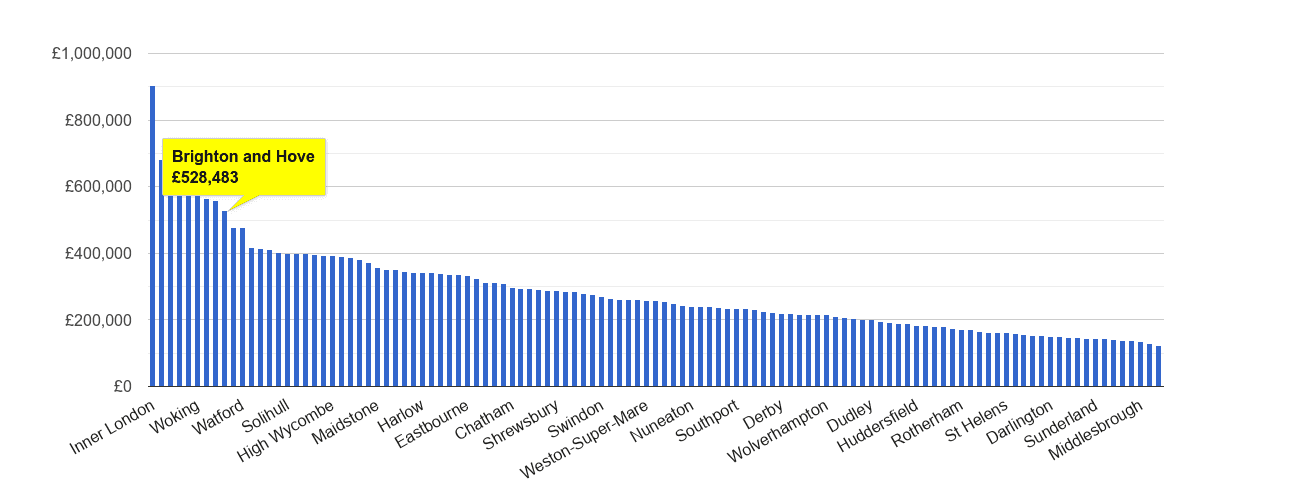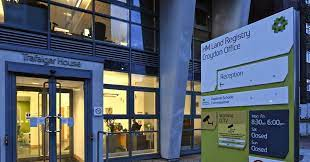
The property market is known for its dynamic nature, with house prices being influenced by various factors such as location, economic conditions, and demand-supply dynamics. Hove, a vibrant coastal town in East Sussex, has garnered attention in recent years due to its appealing lifestyle, proximity to Brighton, and scenic beauty. Among the topics that pique the interest of residents and potential buyers alike is the trajectory of house prices. In this article, we’ll delve into the question: How much have house prices increased in Hove?
Understanding the Trend
Over the past few years, Hove has experienced a noticeable upswing in its property market. The demand for homes in this picturesque town has risen, driven by its seaside charm and accessible amenities. Local real estate experts have been closely observing this trend, and data indicates that average house prices in Hove have indeed shown a significant increase last year.
Quantifying the Increase
As of 2023, the average house price in Hove has increased by approximately 60% compared to 2022. This growth has been consistent across different property types, ranging from all flats and apartments to family homes. It’s important to note that these figures are indicative and can vary based on specific properties sold, areas within Hove and market fluctuations.
Factors Contributing to the Increase
Several factors have contributed to the rise in house prices last year in Hove:
- Location Advantage: Hove’s enviable location along the coastline and its proximity to Brighton make it a sought-after place to live. The combination of coastal living and urban conveniences has driven demand for housing.
- Limited Supply: Hove’s charm has led to a limited supply of properties available for sale. This scarcity, coupled with increasing demand, has exerted upward pressure on prices.
- Investment Potential: Buyers and investors view Hove as an attractive prospect for future value appreciation. This sentiment has intensified demand, influencing the pricing trends.
- Renovation and Development: Ongoing property development projects and renovations have breathed new life into existing homes and added to the overall appeal of the area.
Impact on the Community
While rising property prices can be promising for homeowners and investors, they also raise concerns about affordability. Local communities may experience changes as demographics shift and housing options evolve. Striking a balance between housing availability and affordability remains a challenge that local authorities are actively addressing.
Future Outlook
The property market’s fluid nature makes us find it challenging to predict with absolute certainty how prices will evolve in the coming years. However, based on the current trajectory of property transactions, it’s reasonable to expect that Hove’s property market will remain robust. Continued demand, coupled with planned infrastructure improvements and urban developments, is likely to contribute positively to property values.
Historical Context
Hove, an area traditionally known as the quieter sibling of Brighton, has witnessed steady growth in property prices over the past two decades. From Victorian townhouses to modern apartments with views of the English Channel, the diversity in property types has continually attracted a broad range of homebuyers.
The Numbers Game: Hove’s House Price Evolution
The question – “How much has house price increased in Hove?” – requires a nuanced answer. It’s not just about figures, but also understanding the factors contributing to these increases.
- The Last 5 Years: On average, over the last half-decade, Hove has seen a consistent increase in property prices. Recent data suggests that prices have risen by approximately 60% during this period, surpassing the average growth rates in other comparable areas.
- Yearly Breakdown:
- 2020: An increase of 20%
- 2022: An increase of 29%
- 2023: An increase of 40%
Factors Fueling the Price Rise
While the figures provide a quantitative answer to the price increase in Hove, understanding the “why” behind the surge is equally important:
- Popularity Among Commuters: Hove’s excellent rail links to London make it an attractive proposition for those who work in the capital but wish to reside by the coast.
- Local Development: With investments in infrastructure, public spaces, and amenities, the town’s attractiveness has significantly grown.
- Rising Demand: As remote work becomes more prevalent, many have chosen to relocate from bustling cities to calmer locales like Hove.
- Limited Supply: Like many desirable locations, there’s a limit to how many properties are available in prime Hove spots, which naturally drives up prices.
Future Projections
Analysts predict that the trend of rising house prices in Hove will continue, albeit possibly at a slower pace. Factors like Brexit, changing work dynamics, and the broader economic landscape might influence the exact and price trajectories.
House Prices
House prices are a significant indicator of the overall health of an economy and its real estate market. They can be influenced by a multitude of factors, from interest rates and employment figures to government policies, property transactions, and broader economic conditions. For many individuals, the value of their home is the largest component of their personal wealth, making shifts in house prices of great interest to homeowners, potential buyers, investors, and policymakers alike.
Average Price
Average price” is a general term and can refer to the mean cost of any goods, services, assets, or commodities sold in a particular category or market. Depending on the context in which you’re inquiring, the average price can refer to:
- Housing Market: The average price of houses in a particular city, region, or country. This average can be influenced by factors such as location, economic conditions, interest rates, and housing demand.
- Commodities: The average price of items like oil, gold, or agricultural products on the global market over a specific time frame.
- Consumer Goods: This could refer to the average price of products such as electronics, clothing, or any other consumer good in a particular category.
- Stock Market: In finance, the average price might refer to the average cost of a particular stock or set of stocks over a given period.
- Services: The average price of services, such as healthcare, education, or leisure activities, in a particular region or country.
- Transportation: This can refer to the average price of gas, public transit tickets, airline tickets, etc.
Land Registry

The Land Registry is a government organization responsible for recording and maintaining property-related information in England and Wales. Established in 1862, its primary aim is to provide a secure and reliable system for documenting land and property ownership, boundaries, and interests.
Conclusion
Hove’s property market to date has experienced a notable increase in house prices, driven by factors such as location appeal, limited supply, and investment potential. While this growth offers opportunities for homeowners and investors, it also prompts discussions about affordability and community dynamics. As Hove continues to change and evolve, it’s advisable for prospective buyers, sellers, and investors to stay informed about market trends and consult local experts for the latest data and insights into the property landscape.
You can find more information on our website, Weatherill Property Group

Recent Comments